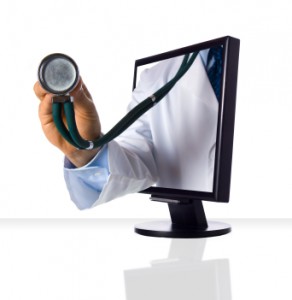By Barbara Ficarra, RN, BSN, MPA
Healthin30 begins to delve into the world of Health IT and we’ll bring you the latest innovations in health care technology.
In the world of Health 2.0 (“user-generated phenomenon”), co-founder Matthew Holt brilliantly captures the technological geniuses that have created and developed health technologies for providers and patients to help reduce costs and simplify their life.
I recently attended the Health 2.0 conference in Washington, D.C. and I was captivated with the sessions; listening to patient stories, and observing the latest in health care tools for consumers.
In addition to attending the sessions, talking to attendees was invaluable. From newbie start-ups on a shoe-string budget, to multidimensional companies, Health 2.0 revealed the best innovations and technologies to a group of enthusiastic people.
One of the highlights of the conference centered around patients. From a panel discussion, “The Role of Consumers in Health 2.0” with patient advocate Trisha Torrey (interview coming soon) to a Breakout Session, “Patients 2.0” with Gilles Frydman, ACOR, hosted a panel of six e-patients who shared their stories. e-Patients included:
- Linda Silversmith, ACOR
- Regina Holliday, Medical Advocacy Mural Project
- Jonathan Kuniholm, The Open Prosthetics Project
- Amy Romano, Lamaze International
- Josh Sommer, Chordoma Foundation
- Carlos Rizo, Innovation Cell
Listening to patients, understanding their wants and needs are critical so providers can help improve their lives with technology that is streamlined, simple and cost effective.
Social networking sites help improve the lives of patients
Social networking sites like PatientsLikeMe, an online site dedicated to supporting people suffering from chronic illnesses, and partners with non-profit organizations, industry and research and academia, strives to help improve the lives of patients.
There are approximately 2,600 forums on PatientsLikeMe with 11 different disease communities, including chronic fatigue syndrome, multiple sclerosis and mood conditions such as anxiety, bipolar and depression. Close to 60,000 members are sharing their health care experiences and data, and it’s free to join.
Patients share data, new treatments become possible
An “Open Philosophy” exists at PatientsLikeMe with an unconventional concept; patients share their health care experiences and outcomes, however PatientsLikeMe believe that sharing data is good because new treatments become possible.
“When patients share real-world data, collaboration on a global scale becomes possible. New treatments become possible,” says the website.
Some of the partners include: Accelerated Cure Project and the Myelin Repair Foundation (non-profits), Novartis Pharmaceuticals Corporation and Avanir Pharmaceuticals (industry) and Forbes-Norris Pacific ALS Centre and Penn State Milton S. Hershey Medical Center (research and academia).
PatientsLikeMe has a unique for-profit business model.
If you’re wondering how PatientsLikeMe makes money, well, it says it right on their site.
How does PatientsLikeMe make money?
We take the information patients share about their experience with the disease, and sell it in a de-identified, aggregated and individual format to our partners (i.e., companies that are developing or selling products to patients). These products may include drugs, devices, equipment, insurance, and medical services. We do not rent, sell or share personally identifiable information for marketing purposes or without explicit consent. Because we believe in transparency, we tell our members exactly what we do and do not do with their data.
By selling this data and engaging our partners in conversations about patient needs, we’re helping them better understand the real world medical value of their products so they can improve them. We are also helping companies accelerate the development of new solutions for patients. Our end goal is improved patient care and quality of life.
PatientsLikeMe offers patients a social networking experience where they can find reassurance, support, insight and hope.
Innovators in health technology
Other health technology innovators include: Kaiser Permanente, Relay Health, Cisco, Everyday Health, Medivo and Scan Alert.
Various technologies from Electronic Medical Records (EMR), to digital data for health consumers, these technologies are changing the way health care professionals communicate with their patients. I will be bringing you information about technology that is helping to change the world of health.
Engaging consumers and leveraging technology
Health IT is about engaging consumers and leveraging technology to help deliver better and more cost effective care. It helps simplify and improve patients’ lives and it brings Innovative ways to help reduce costs and improve quality of health.
In an email to John Mattison, MD, Chief Medical Information Officer at Kaiser Permanente, I asked him, “How does leveraging technology deliver better and more cost effective care?” He replied,
“The vast majority of decisions that influence outcomes in health and wellness are made directly by the consumer. The biggest untapped opportunity ahead rests squarely with how we exploit new technology including mobile devices and social networks to support each consumer in making healthier decisions where they live, work, and play. Only then can we fundamentally bend the trend for cost and quality in health and wellness.”
Health technology that is simple and that revolves around improving the lives of patients and contributes to cost effective care, will continue to flourish when there are these brilliantly minded individuals with a dream and a plan.
—–
Related post – Social Media and Online Health Sites Begins the Conversation With Doctors and Nurses
Follow me on Twitter. Thanks so much.

